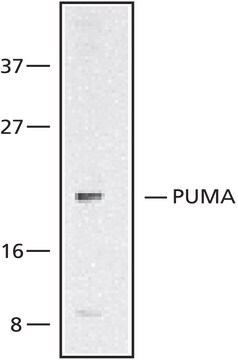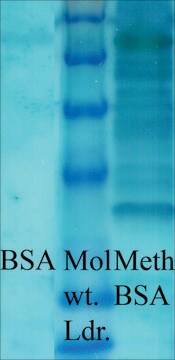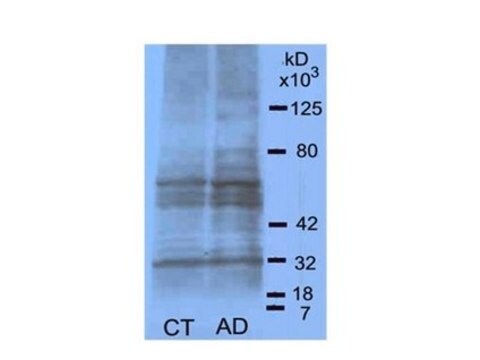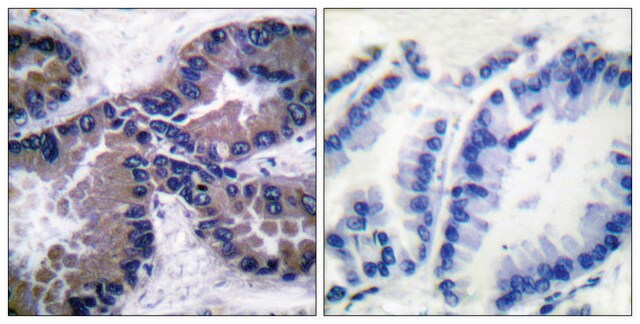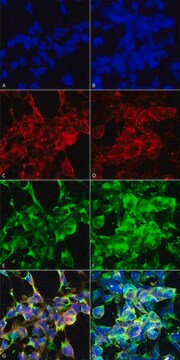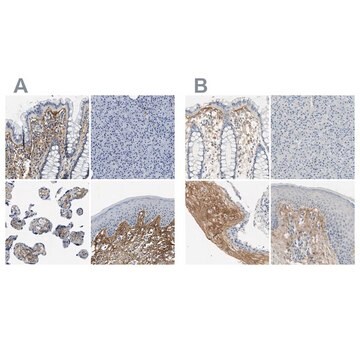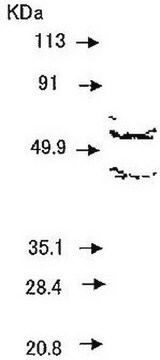MABN1837
Anti-AGE Antibody, Carboxy-Methyl Lysine Antibody, clone 6C7
clone 6C7, from mouse
Sinonimo/i:
N(epsilon)-(carboxymethyl) lysine, CML, AGE-CML, N-epsilon-CML, AGE-CML (6C7) Antibody
About This Item
Prodotti consigliati
Origine biologica
mouse
Livello qualitativo
Forma dell’anticorpo
purified immunoglobulin
Tipo di anticorpo
primary antibodies
Clone
6C7, monoclonal
Reattività contro le specie
mouse
Reattività contro le specie (prevista in base all’omologia)
rat, human
tecniche
immunohistochemistry: suitable (paraffin)
Isotipo
IgG2aκ
Condizioni di spedizione
ambient
modifica post-traduzionali bersaglio
unmodified
Descrizione generale
Specificità
Immunogeno
Applicazioni
Neuroscience
Qualità
Immunohistochemistry Analysis: A 1:50 dilution of this antibody detected AGE, Carboxy-Methyl Lysine in kidney tissue of mice fed high AGE diets.
Stato fisico
Stoccaggio e stabilità
Altre note
Esclusione di responsabilità
Not finding the right product?
Try our Motore di ricerca dei prodotti.
Codice della classe di stoccaggio
12 - Non Combustible Liquids
Classe di pericolosità dell'acqua (WGK)
WGK 1
Certificati d'analisi (COA)
Cerca il Certificati d'analisi (COA) digitando il numero di lotto/batch corrispondente. I numeri di lotto o di batch sono stampati sull'etichetta dei prodotti dopo la parola ‘Lotto’ o ‘Batch’.
Possiedi già questo prodotto?
I documenti relativi ai prodotti acquistati recentemente sono disponibili nell’Archivio dei documenti.
Il team dei nostri ricercatori vanta grande esperienza in tutte le aree della ricerca quali Life Science, scienza dei materiali, sintesi chimica, cromatografia, discipline analitiche, ecc..
Contatta l'Assistenza Tecnica.
